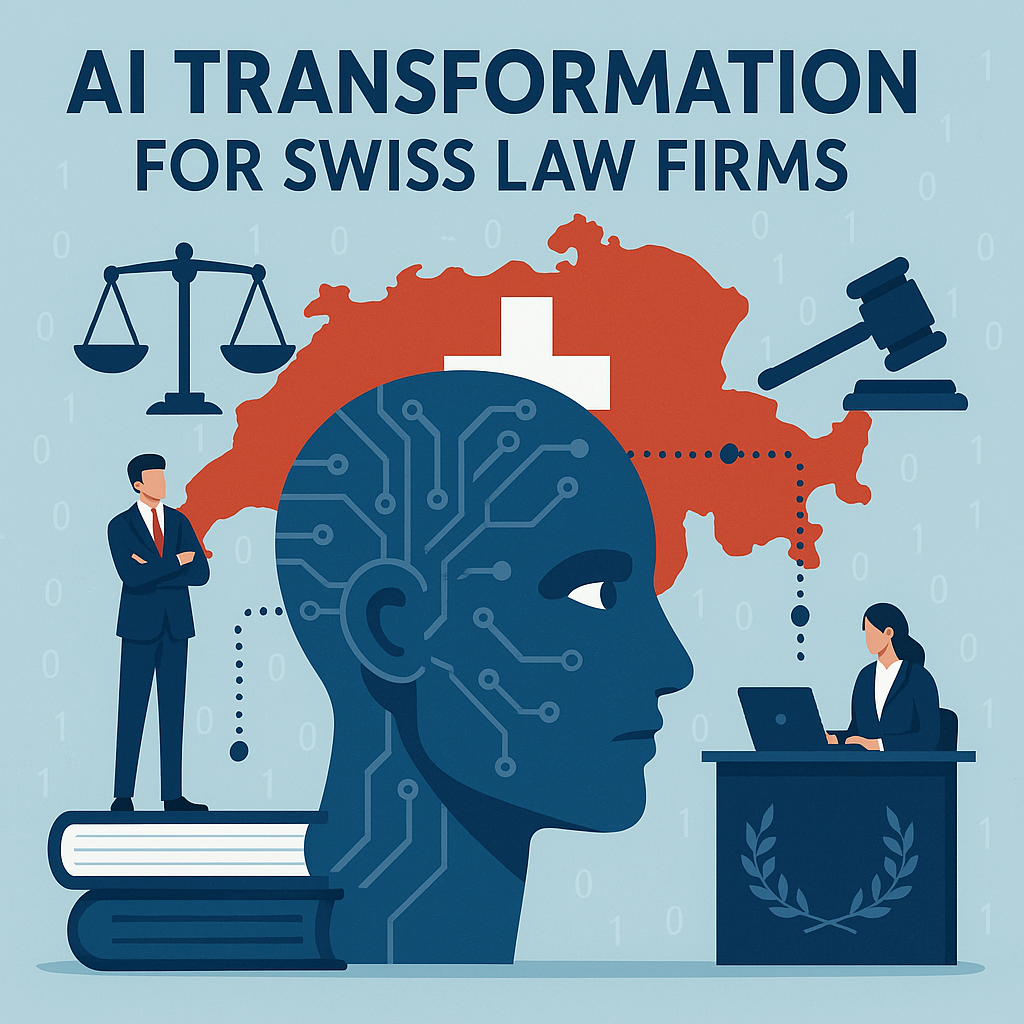As technology continually evolves, artificial intelligence (AI) stands at the forefront of innovation within various sectors, including the legal industry. In Switzerland, where law firms are traditionally rooted in established practices, the impact of AI presents both opportunities and challenges. With AI, law firms can streamline operations, enhance client services, and remain competitive in an increasingly digital world. This blog will explore how AI is reshaping Swiss law firms: from automating mundane tasks to utilizing data analytics for strategic decision-making.
We’ll delve into the adaptability of legal education in light of AI, the ethical concerns surrounding its use, and how firms can leverage advanced technologies to improve accuracy and efficiency. By understanding these changes, law firms can reposition themselves as leaders in adopting innovative solutions.
Understanding AI’s Role in Law
AI technology encompasses various tools designed to perform tasks that typically require human intelligence. In the legal domain, this includes natural language processing, machine learning, and predictive analytics. Tools like contract analysis and legal research databases can significantly reduce the time spent on repetitive tasks.
According to a report by the Swiss Bar Association, the integration of AI can improve operational efficiency by up to 40%, allowing law firms to reallocate resources to more complex legal issues. With AI assisting in document analysis and case law reviews, lawyers can focus on strategy rather than administrative overhead.
Efficiency through Automation
One of the most significant advantages AI brings to law firms is automation. By automating mundane tasks such as document drafting, billing, and client communication, firms enhance productivity and reduce human error. For example, platforms like ROSS Intelligence utilize AI to automate legal research, enabling firms to deliver faster results to clients.
This automation not only cuts costs but allows lawyers to spend more time on client interaction, strategy, and case preparation. A survey from Deloitte indicates that 69% of legal professionals believe that automation leads to enhanced service delivery.
Data-Driven Decision Making
The legal profession is increasingly reliant on data analytics for making informed decisions. AI facilitates the analysis of vast amounts of data, providing insights that can influence case strategies and outcomes. Law firms can use predictive analytics to assess the likelihood of case success or the potential time needed for a legal process.
According to a study by McKinsey & Company, firms that leverage data analytics improve their operational decision-making, leading to a more strategic approach in handling cases. This not only helps in better client outcomes but also positions firms as data-savvy entities.
Enhancing Client Relationships
AI tools also play a pivotal role in enhancing client relationships. Chatbots and virtual assistants provide clients with immediate responses to inquiries, improving overall client satisfaction. This accessibility fosters trust and strengthens client loyalty.
Moreover, AI can personalize client experiences by analyzing historical data and preferences, allowing law firms to tailor their services more effectively. As highlighted by the Legal Services Consumer Panel, personalized services can improve client retention rates significantly.
Challenges and Ethical Considerations
Despite the benefits of AI, law firms must address various challenges, particularly concerning ethics and data privacy. The reliance on AI raises questions about bias in algorithms and the potential for compromising client confidentiality.
Thus, law firms must establish stringent ethical guidelines to govern AI use, ensuring that technology serves to enhance legal practice ethically and responsibly.
The Future of Legal Education
As AI becomes increasingly integral to the legal profession, legal education institutions in Switzerland must adapt their curricula. Future lawyers should be proficient in technology to navigate AI tools effectively.
Leading law schools are beginning to introduce courses focused on technology and law, emphasizing the need for a new generation of lawyers who are tech-savvy and capable of leveraging AI for superior legal services.
Conclusion
The impact of AI on law firms in Switzerland is profound, ushering in a new era of efficiency, enhanced client service, and competitive advantage. While challenges exist, the opportunities presented by AI technology are immense, making it essential for firms to embrace these changes.
As law firms prepare for the future, understanding the ethical implications and investing in training will be crucial for harnessing AI’s full potential. The journey towards AI integration is not merely a technological shift but a comprehensive transformation of the legal industry. By adapting to these advances, Swiss law firms can ensure their place at the forefront of the legal landscape.

